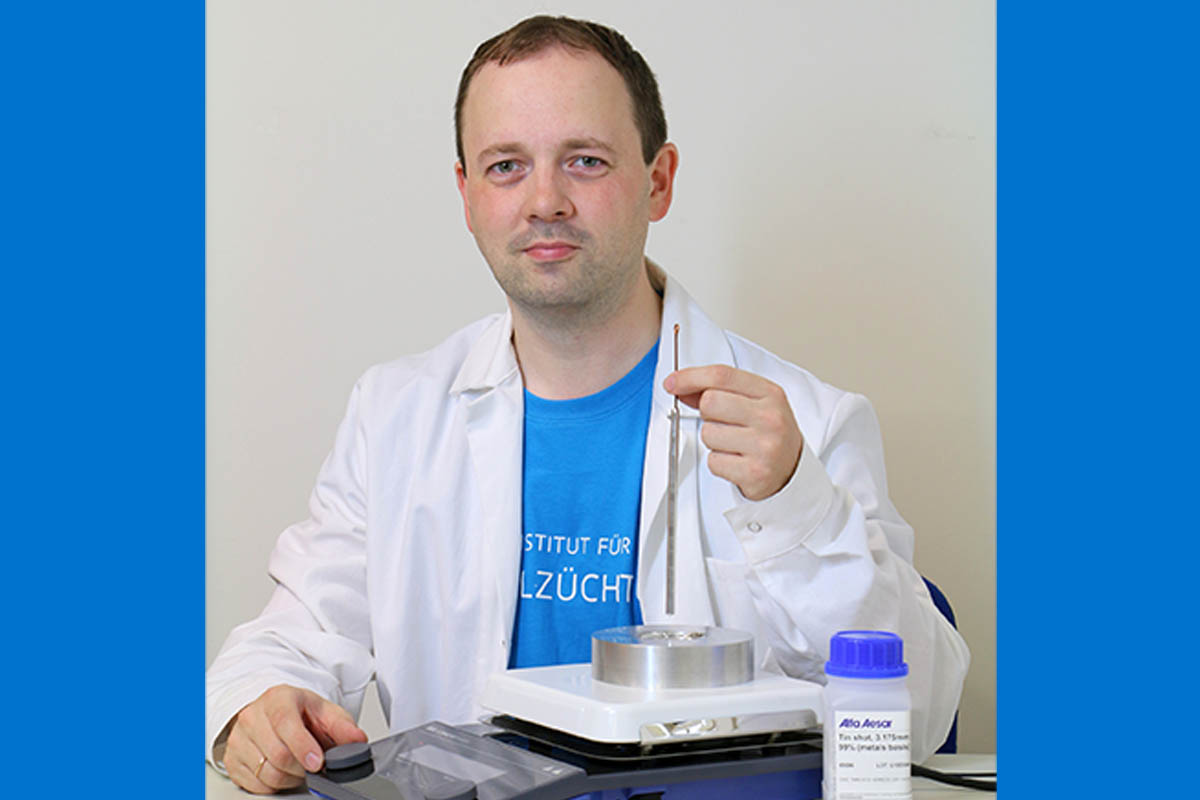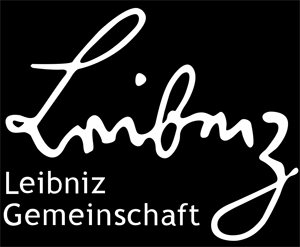For the first time in the history of the Leibniz-Institut für Kristallzüchtung (IKZ) the prestigious grant from the European Research Council (ERC) is awarded to an IKZ researcher. As one of a total of four scientists in Germany, Kaspars Dadzis asserted himself in the "Products and Processes Engineering" panel.
Crystal growth processes are highly complex physical phenomena. In that context numerical simulation is often used for process optimization. However, the lack of possibilities for direct measurements inside of crystal growth environments limits the achievable accuracy of the underlying theoretical models. Consequently, an experimental trial-and-error approach still dominates the practice of crystal growth development. This could change in the future by the work of the junior research group "Model Experiments"under the leadership of Kaspars Dadzis.
The awarded project "Next Generation Multiphysical Models for Crystal Growth Processes (NEMOCRYS)" is dedicated to the development of a new experimental platform (the "MultiValidator") which includes a unique crystal growth setup for model materials. The dedicated design of this setup, reduced working temperatures, and relaxed vacuum-sealing requirements will enable a convenient experimental access for various in-situ measurement techniques. The simultaneous observation of thermal fields, fluid flows, stress distributions and other physical phenomena will allow for the first time to thoroughly validate a series of fundamental assumptions in multiphysical macroscopic models for crystal growth. The NEMOCRYS project has the goal to reach a new level of physical understanding and to change the paradigm how we observe, describe and develop crystal growth processes and similar complex multiphysical systems. The practical results in form of new physical models and optimized measurement techniques will be applied to support various development projects at the IKZ.
Four hundred and eight early-career researchers have been awarded European Research Council grants in this year’s first completed ERC competition. The highly-coveted funding will help individual scientists and scholars to build their own teams and conduct pioneering research across all disciplines. The grants, worth in total €621 million, are part of the EU’ Research and Innovation programme, Horizon 2020. After the completion of his PhD thesis, Kaspars Dadzis worked in the industrial research at SolarWorld in Freiberg focusing on silicon crystal growth for solar cells. In 2016 he moved to the Leibniz-Institut für Kristallzüchtung (IKZ) in Berlin-Adlershof. He received the LIMTECH Young Scientist Award for his work in the field of model experiments and numerical simulation in crystal growth in 2017.
About Starting Grants
ERC Starting Grants are awarded to early-career researchers of any nationality with two to seven years of experience since completion of the PhD (or equivalent degree) and a scientific track record showing great promise. The research must be conducted in a public or private research organisation located in one of the EU Member States or Associated Countries. The funding (maximum €2.5 million per grant, including up to €1 million to cover extraordinary costs) is provided for up to five years. Calls for proposals are published once a year for each scheme.
About the ERC
The European Research Council, set up by the European Union in 2007, is the premiere European funding organisation for excellent frontier research. Every year, it selects and funds the very best, creative researchers of any nationality and age, to run projects in Europe. The ERC also strives to attract top researchers from anywhere in the world to come to work in Europe. To date, the ERC has funded around 9,000 top researchers at various stages of their careers. It offers four core grant schemes: Starting, Consolidator, Advanced and Synergy Grants. The ERC is led by an independent governing body, the Scientific Council. The ERC President is Professor Jean-Pierre Bourguignon. The ERC has a budget of over €13 billion for the years 2014 to 2020, part of Horizon 2020, for which European Commissioner for Research, Innovation and Science, Carlos Moedas, is responsible.
Contact
Leibniz-Institut für Kristallzüchtung (IKZ)
Dr. Kaspars Dadzis
Phone +49 30 6392-2830
Email


